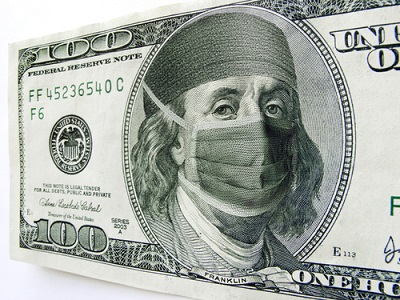
As the enrollment date for Obamacare came to an end this week, one overlooked fact is that the law could have a dramatic impact on the job security and earnings of the working poor. More than one out three people who’ve signed up for coverageearn below the poverty threshold qualifying them for Medicaid, with the incomes of millions more eligible for subsidies to help pay insurance premiums.
Disproportionately, people of color are clustered in jobs that pay by the hour and these individuals are more vulnerable to income loss due to their own illness or that of a family member. That’s why the long-term effect of the law, with its potential to increase wellness and decrease illness among Americans on the economic margins, could be genuinely a big deal for the economic well-being of America’s working poor.
Each year the United States loses between $200 billion to $260 billion in economic output due to the illness of its workers. To put these massive numbers in context, if worker illness could be cut in half, the nation’s economy would grow up to 50 percent faster than it has for the last three years.
A 2005 report (PDF) by the Commonwealth Fund, a foundation focused on improving the nation’s healthcare system, found that Americans lose up to 407 million days’ worth of wages every year due to their own sickness or that of a family member. Altogether that’s a loss of up to $48 billion; money that comes right out of the pocket of workers.
The problem is that for the working poor time is money. Americans who work in lower-wage service jobs at the nation’s malls, restaurants, call centers and repair shops get paid by the hour. Unlike higher-paid salaried workers who receive income regardless of how many hours spent on the job, when hourly-employees don’t work they don’t earn.
Analysis (PDF) by the Economic Policy Institute shows just how stark these realities for working poor families can be. A single parent with children earning $10 an hour—that’s $15,000 a year—who misses up to three days of work could push an entire family into poverty. “Just three and half days of missed work because of illness is equivalent to an entire month’s groceries for the average family,” the EPI goes on to add.
Moreover, hourly-wage jobs are less likely than salaried work to have sick days. Up to nine out of 10 of higher-wage salaried workers have access to time off for getting sick while only two out of 10 lower-wage workers do. This means that hourly workers are more vulnerable to losing their jobs from getting sick and having to miss work. That’s why a five-day illness can translate into months of lost income.
A personal care assistant Marianne Bullock told NPR just how devastating the toll on working families can be. Upon realizing that her sick child needed to be taken to the hospital, Bullock spoke to her manager about the need to care for her daughter. “You might as well not come back,” the supervisor said.
Bullock’s story is not an isolated one. In fact one out six workers says that they have either lost or could lose their jobs if forced to take days for sickness. The 40 million Americans working without sick days live in fear of just what their illness or that of a loved one could mean for their family’s bottom line.
As Kai Wright recently wrote, “three out of four uninsured people had jobs in 2013” and make less than $25,000 a year. Nearly six out of 10 were people of color. If access to healthcare reduces time off from sickness by just two days a year for America’s lowest-wage workers, it will help keep millions of families from experiencing real economic hardship or even job loss.
Of course these real benefits of a fully-functioning and fully-implemented Affordable Care Act—as Obamacare is formally known—is lost in the broader controversy over the economic impact of the law. That’s why Obamacare’s early missteps and current administrative twists and turns are so damaging: they prevent the Affordable Care Act from being as effective as the country needs it to be for the working poor and people of color.
But as I have written before, Republican governors such as Rick Perry of Texas claim that we will look back on Obamacare to see “taxes skyrocket and our economy crushed as our budget crumbled.” Yet these doomsday predictions fail to take into account the current economic nightmare caused by the lack of access to healthcare for America’s historically marginalized communities.
To the contrary, the evidence suggests that both for America’s working poor families and the nation’s economy as a whole Obamacare could very well prove an essential economic lifeline.
Join us in defending the truth before it’s too late
The future of independent journalism is uncertain, and the consequences of losing it are too grave to ignore. To ensure Truthout remains safe, strong, and free, we need to raise $43,000 in the next 6 days. Every dollar raised goes directly toward the costs of producing news you can trust.
Please give what you can — because by supporting us with a tax-deductible donation, you’re not just preserving a source of news, you’re helping to safeguard what’s left of our democracy.